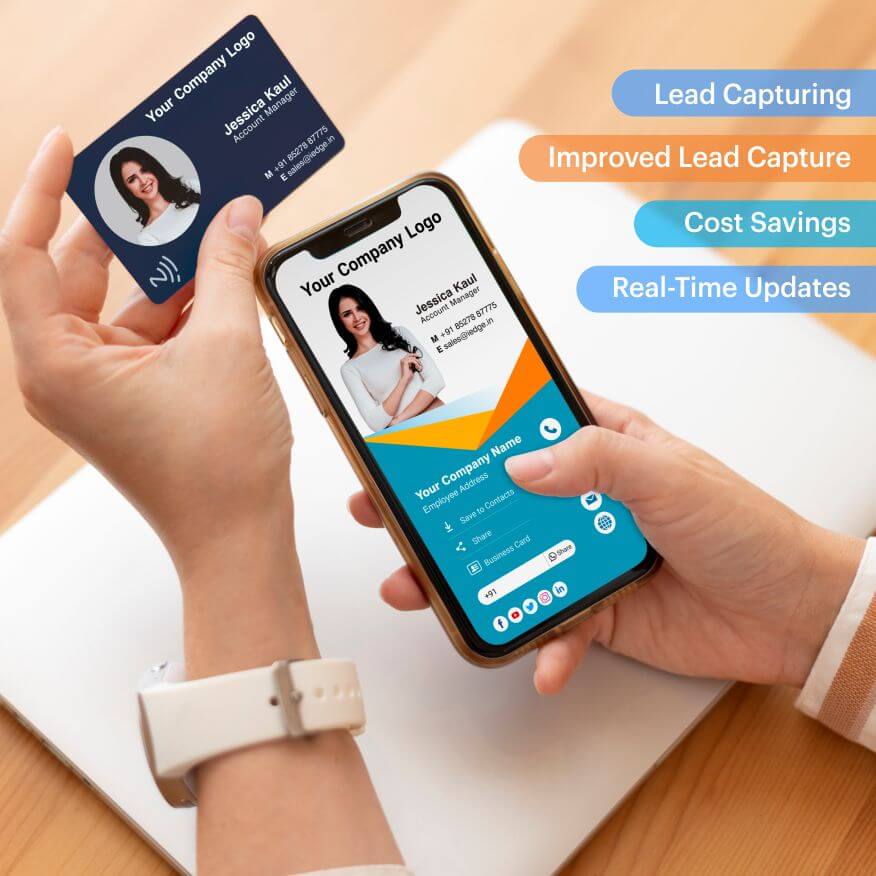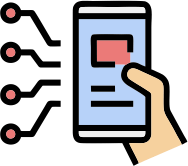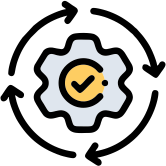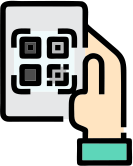How iEdge Virtual Business Card Streamline Your Lead Capturing
Capturing and handling leads efficiently is crucial for your success. Traditional paper business cards have their limitations when it comes to lead management and follow-up. Today speed and efficiency are paramount, businesses need innovative solutions to stay competitive.
This is where virtual business card solutions come into play, which makes it smarter, faster, and more organized approach to lead capturing. Not only do they improve networking efforts, but they also integrate seamlessly into modern digital ecosystems. This makes them indispensable for businesses of all sizes.
Virtual business cards also allow professionals to present their contract information in a modern, tech-savvy way that resonates with today’s digital-first audiences. Whether it’s integrating social media profiles, embedding multimedia content, or tracking interactions, virtual business cards provide an interactive and dynamic experience that paper cards simply cannot match.
Learn how smart virtual business cards from iEdge streamline event networking with seamless sharing, faster lead capture, and improved contact management.

What is Two-Way Contact Sharing?
Two-way contact sharing is a modern method of exchanging contact details where both parties can instantly save each other’s information. Unlike traditional business cards that only share one way, a virtual business card permits recipients to store your details digitally while also sharing their own with just a few taps.
This instant exchange facilities provide better connections and faster follow-ups. In a business context, two-way contact sharing eliminates the hassle of manually entering contact details, thereby reducing errors and improving efficiency.
With a virtual business card, your prospects don’t just receive your information—they also have the opportunity to reciprocate by sharing their own details in a single, streamlined process.
This synergy is particularly beneficial during networking events or client meetings, where every interaction counts. In addition, digital cards can include interactive features such as clickable links to portfolios, appointment scheduling, or even personalized messages that make the networking experience more engaging.
How Do Digital Business Cards Capture Leads?
Digital business cards utilize QR codes, NFC technology, and direct sharing links to seamlessly capture lead data. When a prospect scans the QR code or taps the NFC chip, they are directed to your digital vcard, where they can save your information directly to their phone.
Additionally, advanced virtual business card solutions can integrate with CRM systems, automatically logging new contacts and allowing for real-time updates. These automated workflows not only save time but also ensure that no lead is overlooked.
The dynamic nature of digital cards also allows professionals to adapt their information based on the context. For instance, a sales representative at a tech conference might emphasize direct contact information and a scheduling link.
Example
Imagine attending a networking event. You meet a potential client, and instead of handing over a traditional card, you share your virtual business card. They scan your QR code and instantly have your information saved, while you simultaneously capture their details.
This two-way interaction not only impresses prospects but also ensures no missed opportunities. Later, when you revisit your CRM, you find that the contact is already logged with relevant notes and tags. This makes follow-ups easier and more targeted. Moreover, the card’s analytics reveal how many times it was viewed, indicating the prospect’s interest level.
Key Benefits of Virtual Business Card for Sales Team
1. Real-Time Updates
Keeping contact information up to date is crucial. Virtual business cards allow you to update yoru details in real time, ensuring that your prospects always have your latest information. Whether it’s a phone number change or a rebranded company logo, the updates are instant and hassle-free.
This agility is vital in industries where contact details can change frequently, such as sales, consulting, or freelance services. Additionally, real-time updates prevent the common problem of outdated or incorrect information circulating among contacts.


2. Improved Lead Capture and Follow-ups
Virtual business cards streamline lead capture by directly integrating with CRM tools. Sales teams can instantly log new contacts, categorize leads, and schedule follow-ups. This automated process saves time and reduces the risk of data entry errors.
Additionally, integrated analytics allow sales teams to track when and how their cards are shared, offering insights into networking efficiency and prospect engagement. Tracking metrics such as the number of scans, shares, and interactions helps gauge the effectiveness of networking efforts.
3. Environmental Impact and Cost Savings
Switching from paper to digital means eliminating printing costs and reducing environmental waste. Companies can allocate resources more efficiently while also supporting eco-friendly practices.
Moreover, virtual business cards reduce the risk of loss or damage, as they are stored digitally and easily accessible across devices. Going digital also aligns with corporate social responsibility (CSR) initiatives, promoting sustainability while maintaining professional connectivity.


4. Easy Integration
Modern digital business card solutions seamlessly integrate with popular CRM platforms, email marketing tools, and contact management systems. This makes it easier for sales teams to manage leads and automate follow-up tasks.
Some advanced systems also offer API integrations, allowing businesses to create customized workflows tailored to their unique needs. Integration with tools like LinkedIn, Calendly, and Zoom further improves their functionality.
5. Best Practices for Sales Team Using Virtual Business Cards
- Always update your card with accurate and relevant information.
- Utilize QR codes or NFC for quick sharing during networking events.
- Follow up promptly after sharing your digital vcard.
- Personalize the experience by adding your photo or logo.
- Track interactions using integrated analytics to measure engagement.
- Educate your team on effectively using digital business card solutions to maximize their potential.
- Customize your card based on the audience or event, emphasizing the most relevant details.

Wrap Up
Virtual business cards are more than just a digital upgrade; they are a powerful tool for modern networking and lead management. By enabling seamless contact sharing and integrating with CRM systems, they help businesses streamline their lead capturing efforts.
For sales teams looking to stay ahead, adopting a modern digital business card is no longer an option but a necessity. The transition from traditional to digital cards not only reflects a commitment to innovation but also demonstrates a proactive approach to client engagement and sustainable business practices.
Embracing this technology not only positions your business as forward-thinking but also enriches the overall efficiency of your networking and sales processes.
FAQs
Business cards are essential for professional networking, allowing quick information sharing. A modern digital business card offers enhanced benefits like real-time updates, easy integration with CRM systems, and environmental savings. Unlike traditional cards, they can store interactive elements such as clickable links and social media profiles. Digital business card solutions ensure that your contact details are never outdated, improving lead capture and follow-up efficiency.
Digital business cards can be distributed via QR codes, NFC technology, or sharing links through email, messaging apps, or social media. By utilizing visiting card digital solutions, you can instantly share your information with anyone, even remotely. Embedding your digital vcard on your website or email signature ensures continuous visibility.
A digital business card simplifies contact sharing and lead management. It offers a modern digital business card solution that integrates with CRM systems, tracks interactions, and updates in real time. This makes it more versatile than paper cards, as it caters to the fast-paced needs of modern business environments.
Business cards build brand identity and facilitate connections. A virtual business card takes it a step further by offering dynamic content and seamless integration with digital workflows. It enhances lead capturing, follows sustainable practices, and keeps contact information updated, improving networking and client engagement.
The best use of a business card is to make lasting professional connections. A modern digital business card serves this purpose while also supporting lead tracking, data integration, and real-time updates. It’s an essential tool for modern professionals seeking to improve their networking efficiency.

